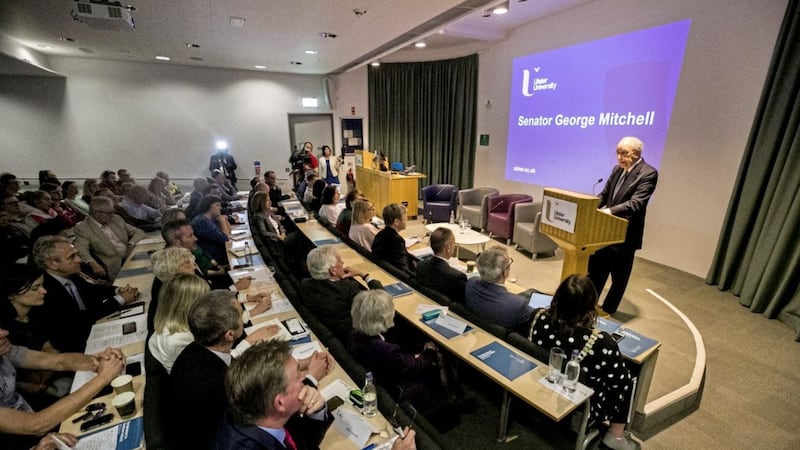Every effort should be made to avoid a return to violence in Northern Ireland, former senator George Mitchell has said.
The Good Friday Agreement negotiator urged Stormont's politicians to address their problems in a realistic fashion.
Paramilitary ceasefire generation journalist Lyra McKee, 29, was shot dead by dissident republicans opposed to the peace process during unrest in Derry last month.
Mr Mitchell said: "We should not ignore the fact that significant progress has been made in many areas, most notably in the absence of, or a sharp reduction in, political violence in recent years and we have to be conscious of the fact that a return to violence continues as a possibility not just in Northern Ireland but in every society."
He added: "We have to take all steps, whatever is necessary, to reduce the likelihood of a return to violence.
"Here it is particularly acute of course because there has been a long history of political violence here."
Mr Mitchell chaired negotiations which led to all sides accepting the principle of non-violence in Northern Ireland.
He helped produce the 1998 Belfast Agreement, which he has always described as part of a peace process which needs constant maintenance.
The veteran Democrat said: "We have to encourage the political leaders of Northern Ireland, in a realistic way, to deal with their problems, but not to create the impression that Northern Ireland is unique or distinct or alone among democratic societies in having social problems and political difficulties.
"You cannot ignore the issues but you cannot dwell on them to the point where you render yourself incapable of dealing with the issue.
"Division over identity in Northern Ireland does remain a threat to the stability of the institutions and addressing those issues must be a clear commitment by all of the political parties and all of the leaders in Northern Ireland."
Mr Mitchell said economic deprivation underlay sectarianism and violence.
He said: "Where men and women do not have hope, do not have opportunity, are unable to care for their children, unable to get their children off to the good start in life that they want, there lie the ingredients for violence.
"Whether there are religious differences or not, whether there are territorial disputes or not, human beings need hope, they need opportunity, they need self-esteem if they are to be successful, contributing members of society and happy in their own lives.
"That is critical here in Northern Ireland today, just as it was 21 years ago, and I suspect 50 years ago and 75 years ago.
"No one should lose sight of that fact."
Miss McKee died in Derry, one of the most deprived areas of the UK, which has traditionally suffered from high unemployment.
A rallying call for action by a priest at her funeral prompted renewed negotiations by political leaders at Stormont.
The British and Irish governments are leading a bid to secure a resurrection of the devolved institutions, which have been suspended for around two and a half years.







